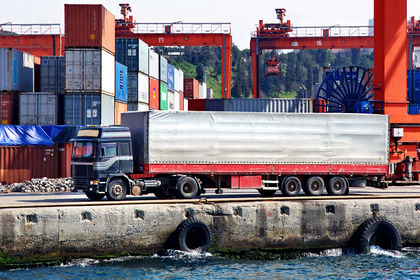Turkey - Industry

Overall industrial production, which had increased by annual rates of close to or over 10% from 1973 to 1977, fell sharply because of Turkey's financial crisis in 1978–79 and actually declined by 5% in 1979 and 1980. After the government's economic reform program slowed inflation and stabilized the lira, industrial production improved. Production rose 28% during 1985–87. State enterprises were restructured to reduce their government subsidies and to make them more productive and competitive with private firms. However, industry has continued to suffer from structural weaknesses and, in many firms, production facilities are obsolete. Production rose by an annual average of almost 5% 1980 to 1993, but fell more than 6% in the recession of 1994 as the chronic double digit inflation rose to triple digits at 128%. Manufacturing output recovered strongly from 1994 to 1995, rising 30% from $34.3 billion to $44.7 billion, and then another 4.25% in 1996 to $46.6 billion. The industrial production index (1992=100) rose to a peak of about 132 in May 1997, and capacity utilization peaked in September at 82.%. The Russian financial crisis helped throw both indicators into decline and by August 1999 the industrial production index had fallen 20% to about 111 (1992=100) and capacity utilization to about 67%. Another period of recovery lasted until the banking crisis of late 2000, although capacity utilization remained below 77%. From November 2000 to October 2001 the industrial production index fell 20%, from 130 to 110 (1992=100), and capacity utilization dipped below 74%. The Turkish State Institute of Statistics (DIE) reported the for the 2001 industrial output declined 8.9% including a 9.9% decline in manufacturing, a 7.9% decline in mining, and a 1.5% decline in utility outputs. Continuing its roller coaster pattern, in the first quarter of 2002, the industrial production index was back up to 132 as capacity utilization rose marginally to 75%.
The textile industry, Turkey's largest manufacturing sector, is centered in Izmir, Istanbul, Adana, and Kayseri. The removal of EU quotas on imports of textiles and apparel when Turkey joined in a customs union with the EU in 1996 has improved growth prospects, and there is anticipation that the removal of global quotas in 2005 will offer even greater opportunities if carried out as scheduled.
Secondary mineral commodities, including refined petroleum products, steel, cement, glass, and certain chemicals account for over two-thirds of manufacturing output. Turkey's largest industry is petroleum refining. Turkey has very limited energy resources—it produced less than 8% of its oil consumption in 2001—but because of its strategic location between Europe and Asia, Christian and Moslem, oil consumers and oil producers, it is crossed by several major oil and gas pipelines. Turkey has six oil refineries, four operated by the state. The four state refineries—at Izmit (226,440 barrels per day capacity), at Aliaga (226,440 barrels per day), at Kirikkale (113,220 barrels per day), and at Batman (22,015 barrels per day)—are operated by the Turkish Petroleum Refineries Corporation (Tupras), which by 2002 had been 35% privatized in two public offerings with a third, aimed at bring the private share to 51%, delayed by the aftermath of the 11 September 2001 terrorist attacks on the United States. The government has announced the intention of privatizing Tupras 100%. The major private refinery in Turkey is Anadolu Tasfiyehanesi AS (ATAS), 51% owned by Exxon Mobil, with participation by Shell (27%), BP Amoco (17%), and the Marmara Petrol (5%), and refinery capacity of 100,000 barrels per day. A small 6,000-barrels-per-day refinery in southeast, built in 1970 by the Texas oil engineering firm Baker-Howe, was bought in 1997 by Aladdin Middle East Ltd., a US-based company concerned mainly with oil exploration and development in this Kurdish-dominated region. The production of most refined petroleum products progressed Total refinery production suffered in the Russian financial crisis of 1998 and the Izmit earthquake of 1999, which damaged the Izmit Refinery in Kocaeli Province, epicenter of the earthquake. The production of motor gasoline, jet fuel, and liquefied petroleum gases peaked in 1997, while distillate fuel oil and total production of refined products peaked in 1998 (559,000 barrels per day). Residual fuel oil production peaked in 1995. In 2000, 141,000 barrels per day of residual fuel was produced, 135,000 barrels per day of residual fuel oil, 63,000 barrels per day of motor oil, 22,000 barrels per day each of jet fuel and liquefied petroleum gases, and 1,000 barrels per day of kerosene for a total production of 481,000 barrels per day.
Major industrial complexes include the government-owned iron and steel mill at Karabuk and the Eregli iron and steel works. Other important Turkish enterprises are brick and tile, glass, leather, chemicals and pharmaceuticals, metalworking, cordage, flour milling, vegetable-oil extraction, fats and oils, paper products, printing and publishing, plastic products, and rubber processing. The sugar-beet industry ranks first among food-processing industries and produces more than domestic consumption requires. The automobile industry expanded rapidly in the 1970s. Tofas, a joint venture between Fiat and Koc Holding A.S, Turkey's biggest industrial conglomerate, is the leading automotive producer. In view of the collapse of domestic demand in its worst economic slump since 1945, Turkey is looking to automotive exports of over $700 million in 2003 to help revitalize the economy. Much of the production of machines, consumer goods, and tools takes place in hundreds of small machine shops and foundries, where little special-purpose machinery is used. Industry accounted for 28.4% of GDP in 2000 (up from 25.9% in 1995) and, as of third quarter 2001, employed 22.4% of the labor force.